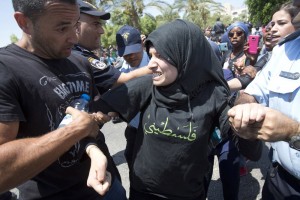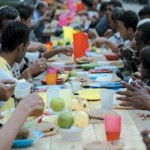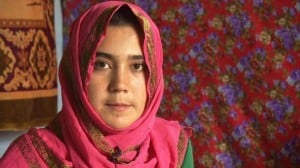A record number of Rohingya women and their children are fleeing Burma/Myanmar by boat, which is a very difficult journey with many hazards along the way. Female Rohingya refugees in Thailand are very vulnerable and often fall prey to human traffickers.
Malala Yousufzai, the shot Pakistani schoolgirl, addressed the UN on her sixteenth birthday on July 12, speaking about education for all and her determination to continue her fight. In a letter from a senior Taliban commander to Malala Yousufzai, he says that he personally wished that the attack did not happen, but he blames her for “smearing” the Taliban and urges her to come home and join an Islamic madrassa close to her home.

An Afghan court has ordered the release of the torturors of child bride Sahar Gul. Sahar Gul, who was 12 when she was married, is fearing for her life and appealing against the order.An Egyptian girl, Amira, has shot herself after her family pressured her, allegedly with violence, to wear the headscarf.
Iranian women’s rights activists have outlined their demands to improve the circumstances of women in Iran and presented the demands to president-elect Hassan Rohani. Current president Ahmedinejad, however, has proposed a bill that limits the working hours of some women; activists claim this is yet another attempt to further reduce the female participation in the workforce.
Sara is a tattoo artist in Iran, who, like other tattoo artists in the country, works underground.A new proposal for a law in Turkey has many wondering if the government is trying to make it almost impossible for women to obtain the morning-after pill, or birth control pills.
Al-Monitor feaures a story on the thriving sex trade in Iraq.
Indonesia has said it will penalize political parties, if they do not meet the quota of at least 30 percent female candidates. Right now women hold 19 percent of the seats in parliament.
A group of Bosnian women claim that Bosnian Serb police have used force and injured eight women, trying to stop the women from laying flowers in a warehouse where around 1,000 men and boys were killed in 1995 during the Srebrenica massacre.
Women’s crime rate in Uzbekistan is on the rise; some claim that Uzbek women are often not aware that they are committing a crime, and others blame the high unemployment and poverty rates in the country.
An unlikely, but possible alliance between Afghan women’s activists and Afghan religious leaders could be a way to promote and enhance women’s rights through Islam.
The number of Latina converts to Islam in the USA is fast increasing.
The Daily Mail reports on the practice of force feeding, and alleged use of animal growth hormones among Mauritanian women in order to become bigger, and therefore more attractive.
A recent court decision in Bangladesh, which will ensure that female victims of rape will be seen by female doctors, and not male, for their physical examination. It is hoped that this will make it easier for Bangladeshi women to take their rape cases to court.
The Guardian features a piece on the experiences of three British Muslim women on the dating scene.
Seven women were killed in a stampede during the distribution of Ramadan charity in Zamfara, Nigeria.
Madawi Al-Rasheed discusses the frequency of abuse of maids in Saudi Arabia, and the difficulty to fight the abuse and ill-treatment.
The report on birth defects in Iraq by the World Health Organization (WHO) will be extensive, but critics say that it will most likely not be focused on the cause of the birth defects.
CNN features a piece on why some American Muslim women choose to were the hijab or niqab.
A Kurdish couple in Turkey have won the right to name their newborn daughter Kurdistan, a name that was previously forbidden in Turkey.












